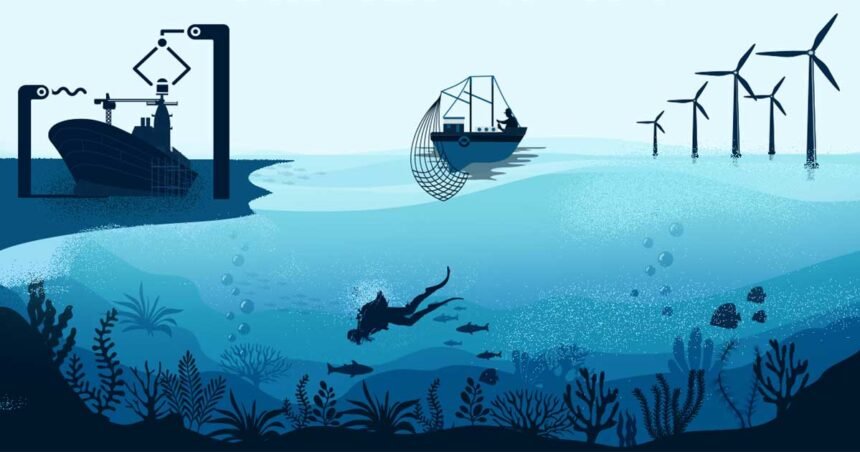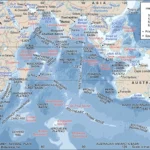The Indian Ocean, a vast expanse of water stretching between Africa, Asia, and Australia, holds not only mesmerizing marine life but also an abundance of invaluable natural resources. This article aims to illuminate the economic importance of the Indian Ocean, with a specific focus on three key industries: fishing, oil and gas exploration, and deep-sea mining. By exploring the immense potential of these resources, highlighting the challenges of sustainable resource management, and emphasizing the need for international cooperation, we can strive to ensure the long-term viability of these valuable assets.
One of the primary industries thriving in the Indian Ocean is fishing. The ocean’s waters teem with a diverse array of fish species, making it a lucrative region for commercial and subsistence fishing. Countries along the coast, such as India, Indonesia, and Sri Lanka, heavily rely on the ocean’s bountiful resources to support their economies and provide sustenance to their populations. However, overfishing and destructive fishing practices pose significant challenges to the sustainability of this industry. International cooperation is crucial in implementing effective management strategies, such as regulating fishing quotas and promoting responsible fishing practices, to prevent the depletion of fish stocks and safeguard the livelihoods of coastal communities.
In addition to fishing, the Indian Ocean is a promising frontier for oil and gas exploration. Offshore drilling has uncovered substantial reserves of hydrocarbons, attracting both national and international companies seeking to capitalize on these resources. Countries like India and Oman have made significant strides in oil and gas production, contributing to their economic growth. However, the extraction and transportation of fossil fuels also present environmental risks, including oil spills and greenhouse gas emissions. Balancing the economic benefits with sustainable practices and investments in renewable energy sources is crucial for minimizing the ecological impact and transitioning towards a greener future.
Beyond oil and gas, the Indian Ocean holds the potential for another lucrative industry: deep-sea mining. The ocean floor is rich in mineral deposits, including polymetallic nodules, cobalt-rich crusts, and hydrothermal vents. These resources have applications in various industries, including technology, manufacturing, and renewable energy. However, deep-sea mining is an emerging field, and its environmental consequences are not yet fully understood. The extraction process can disrupt delicate ecosystems and cause irreversible damage to marine life. A comprehensive regulatory framework, supported by international collaboration, is necessary to ensure responsible and sustainable deep-sea mining practices.
The sustainable management of the Indian Ocean’s natural resources requires collective efforts on a global scale. International cooperation among coastal states, as well as collaboration with organizations such as the United Nations and regional bodies, is vital in addressing the challenges associated with resource exploitation. Together, stakeholders can establish robust frameworks for resource governance, encourage the adoption of sustainable practices, and foster the equitable distribution of economic benefits.
The Indian Ocean is a treasure trove of natural resources, offering immense economic potential across industries such as fishing, oil and gas exploration, and deep-sea mining. However, sustainable resource management and international cooperation are imperative to safeguard these valuable assets for future generations. By adopting responsible practices, investing in renewable energy alternatives, and promoting global collaboration, we can ensure the long-term viability of the Indian Ocean’s resources while preserving its delicate ecosystems.




